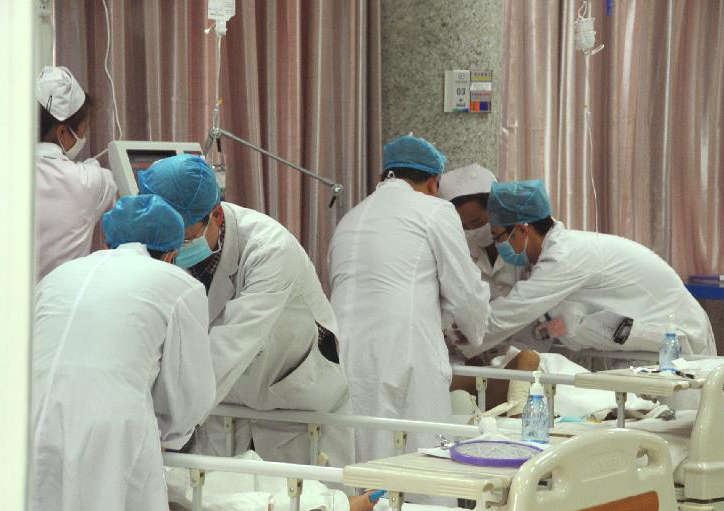China Health Authorities Report First Death From Mysterious Viral Pneumonia Outbreak
Source: Thailand Medical News Jan 11, 2020 5 years, 11 months, 3 weeks, 1 day, 14 hours, 8 minutes ago
Health authorities in
China on Saturday officially announced that a 61-year-old man had become the first person to die from
viral pneumonia believed caused by a new virus from the same family as
SARS, which claimed hundreds of lives more than a decade ago.

Fifty-nine people with
pneumonia-like symptoms have so far been diagnosed with the new
virus in the central Chinese city of
Wuhan, with one of the victims dying on Thursday,
Wuhan's health commission told
Thailand Medical News.
Another seven remained in critical condition, two were discharged from treatment, and the rest were stable, it added. More than a few hundred who could have come into contact with those infected have been quarantined.
The outbreak has caused alarm due to the spectre of
SARS, or Sudden Acute Respiratory Syndrome, which in 2002-2003 killed 349 people in mainland
China and another 299 in Hong Kong, whose economy was hit hard by the epidemic's devastating impact on tourism.
Medical scientists investigating the outbreak said last week they believe the pathogen to be a previously unknown type of
coronavirus, a broad family ranging from the common cold to more serious illnesses like
SARS.
Healthcare professionals in Hong Kong's Department of Health said Saturday that genetic sequencing of the virus found in one of the
Wuhan patients and published online by a Chinese expert indicated it was 80 percent similar to
SARS found in bats.
Talking at a news conference in Hong Kong, they said it was too early to conclude definitively that it was a
SARS strain, adding that the city needed to stay vigilant.
Dr Wong Ka-hing, director of the department's Health Protection Centre told Thailand
Medical News, "We will remain alert as we believe the epidemic will continue to develop."
Authorities in Hong Kong have taken a range of precautions including stepping up the disinfection of trains and planes, and checks of passengers.
The health commission in
Wuhan said the man who died had purchased goods from a seafood market in the city identified by authorities as the centre of the outbreak. It was closed on January 1.
The male patient, who also had underlying health issues including chronic liver disease, died in hospital on Thursday of "respiratory failure and severe
pneumonia", the commission said.
To date, no new cases have been detected since January 3 nor any "clear evidence of human-to-human transmission", the commission said.
The World Health Organisation (WHO) said Thursday it was not recommending any specific measures for travellers or restrictions on trade with
China, and expressed confidence in the abi
lity of Chinese authorities to contain the
virus.
Unfortunately
China has entered its annual Lunar New Year holiday travel rush, raising the spectre of the mass movement of people serving as a vector for the pathogen. In the world's largest annual human migration, hundreds of millions will pack together on trains, buses and planes for the festival in late January.
To date,
China has not announced any travel restrictions.
Meanwhile, Hong Kong authorities have said 48 people have been hospitalised in recent days after returning from
Wuhan and displaying flu-like illnesses, but none have yet been confirmed to have contracted the new
coronavirus.
Hong Kong city residents worried about the outbreak have rushed to buy face masks from local pharmacies, with many selling out earlier this week, while officials in Taiwan have urged the island's health and welfare ministry to strengthen quarantine controls.
